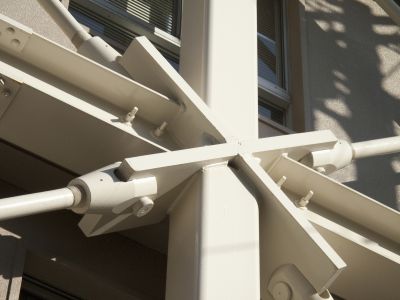Optimal Timing for Structural Engineer Certifications
Structural engineer certifications are essential for professionals seeking to demonstrate expertise in designing and analyzing structural systems. The timing of certification can impact career advancement, project opportunities, and professional credibility. Typically, pursuing certification after gaining relevant work experience ensures a comprehensive understanding of structural principles and industry standards.
Most professionals pursue certification after accumulating several years of practical experience, usually post-licensure or equivalent.
Certifications are often sought during periods of increased infrastructure projects or construction activity.
Timing depends on individual preparedness, including completing required coursework and gaining relevant experience.
Some regions or employers encourage certification at specific career milestones for advancement.

Ways to make Structural Engineer Certifications work in tight or awkward layouts.

Popular materials for Structural Engineer Certifications and why they hold up over time.

Simple add-ons that improve Structural Engineer Certifications without blowing the budget.

High-end options that actually feel worth it for Structural Engineer Certifications.

Finishes and colors that play nicely with Structural Engineer Certifications.

Little measurements that prevent headaches on Structural Engineer Certifications day.

A 60-second routine that keeps Structural Engineer Certifications looking new.

A frequent mistake in Structural Engineer Certifications and how to dodge it.

Small tweaks to make Structural Engineer Certifications safer and easier to use.
| Aspect | Details |
|---|---|
| Ideal Certification Timing | After gaining sufficient work experience and industry knowledge. |
| Seasonal Considerations | Spring and fall often align with project cycles and academic schedules. |
| Industry Trends | Monitoring infrastructure projects can guide optimal certification timing. |
| Personal Development | Completing coursework during less busy periods enhances exam readiness. |
| Economic Conditions | Economic downturns may delay certification plans, while booms may accelerate them. |
| Employer Policies | Some organizations have specific timelines for supporting certification efforts. |
| Geographic Factors | Regional project activity influences the best time to pursue certification. |
| Certification Availability | Scheduling exams during testing windows ensures timely certification. |
Structural engineer certifications serve as a benchmark of professional competence, enhancing credibility and career prospects. They typically require a combination of education, work experience, and successful examination performance. Data indicates that certified engineers often experience higher earning potential and increased job opportunities. The certification process involves rigorous assessment of technical knowledge, practical skills, and adherence to industry standards. Professionals who pursue certification at strategic points in their careers can maximize benefits and align their credentials with industry demands.

Lower-waste or water-saving choices for Structural Engineer Certifications.

The short, realistic tool list for quality Structural Engineer Certifications.

Rough timing from prep to clean-up for Structural Engineer Certifications.

Quick checks and paperwork to keep after Structural Engineer Certifications.
Interested individuals are encouraged to contact for further guidance on the best timing and preparation strategies for structural engineer certifications. Proper planning and understanding of industry cycles can facilitate successful certification pursuits, advancing professional expertise and opportunities.
